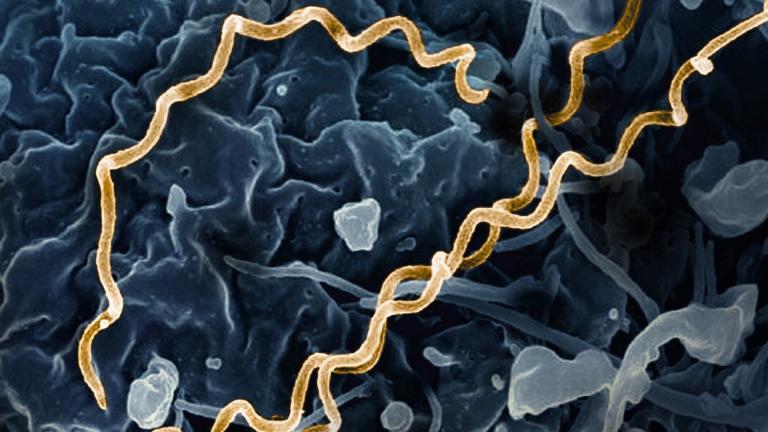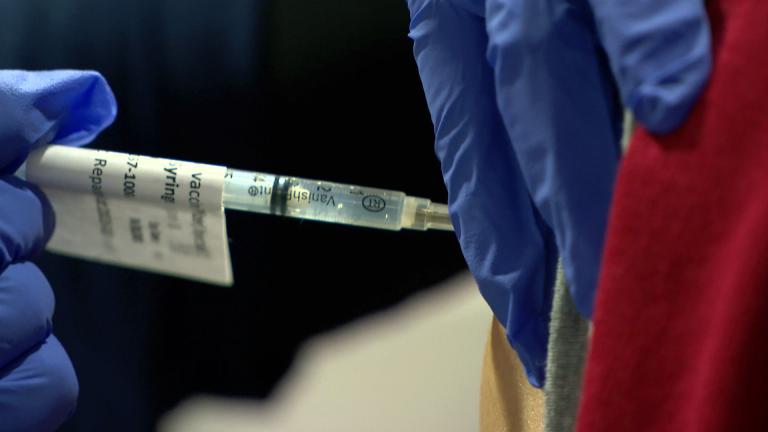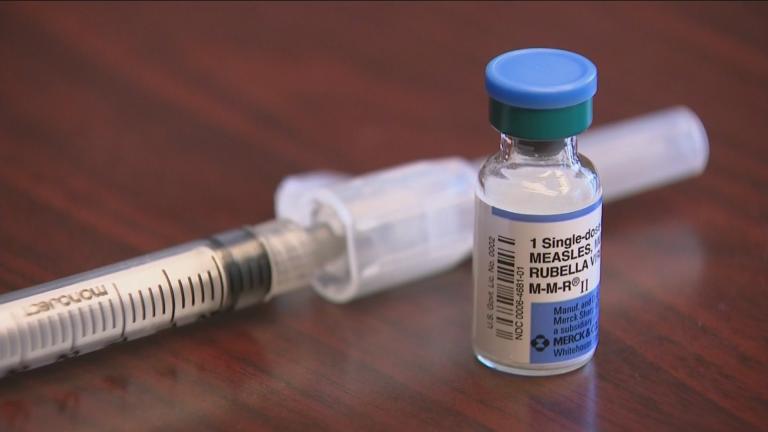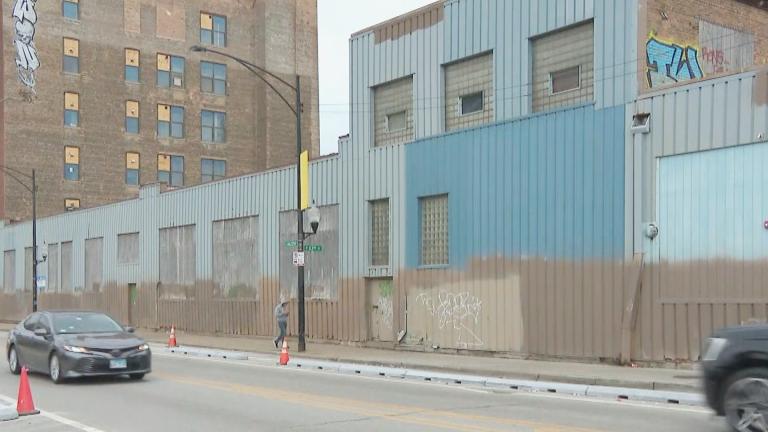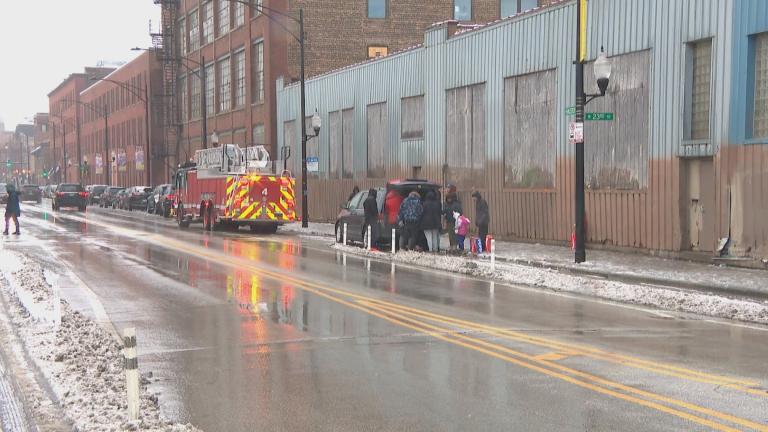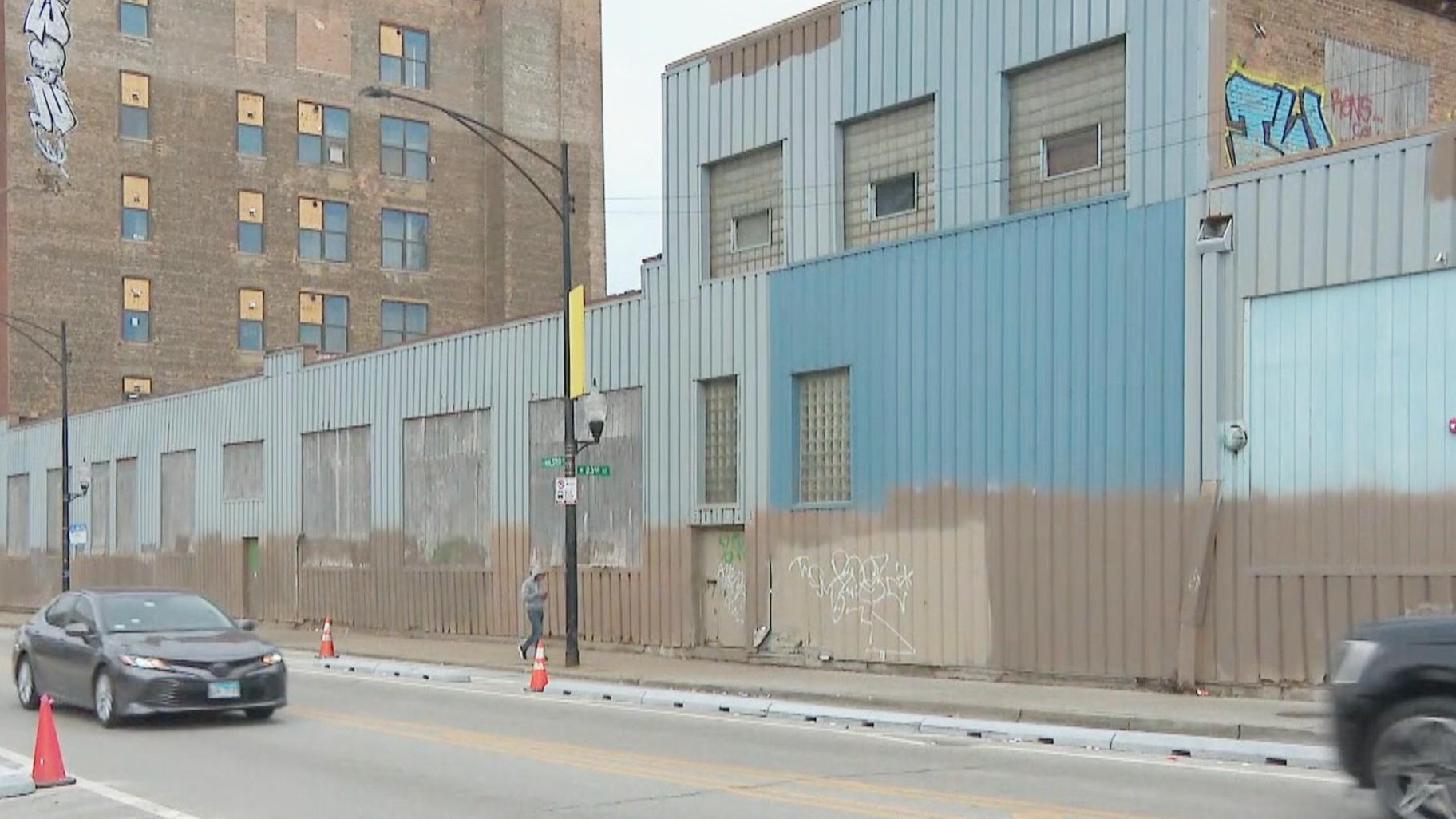 The former industrial building at 2241 S. Halsted St. that has been converted into the city's largest shelter. (WTTW News)
The former industrial building at 2241 S. Halsted St. that has been converted into the city's largest shelter. (WTTW News)
One adult and two children living at the shelter for migrants in Pilsen were diagnosed with a confirmed case of measles bringing the total number of cases at the city’s largest shelter to seven, city health officials announced Monday.
The news of the latest cases came on the same day as a team from the Centers for Disease Control arrived in Chicago to help city health officials cope with the growing measles outbreak.
City health officials said they did not know the condition of the latest people to be diagnosed with measles, even though they have disclosed the conditions of the others who contracted measles.
Health officials “have assessed nearly all the residents of the Pilsen shelter, vaccinating around 900 and confirming immunity for the remainder, meaning they were either previously vaccinated or had been infected so were protected,” according to a statement.
Teams of health officials have now moved on to other shelters throughout the city to provide vaccinations to those who have not yet received them, officials said.
Health officials said the measles-mumps-rubella vaccine, or the MMR vaccine, is highly effective and remains the best protection against measles.
Nearly 1,900 men, women and children sent to Chicago were living in the former industrial building at 2241 S. Halsted St. when the first measles case was diagnosed.
Those who are newly vaccinated or who are not vaccinated should remain in the shelter for 21 days, the incubation period for disease, officials said. Some residents who need to quarantine will be moved into hotel rooms, officials said. Similar efforts were used by city officials at the height of the COVID-19 pandemic to stop the spread of another infectious disease.
As migrants arrive in Chicago and apply for shelter, they will be offered doses of the measles-mumps-rubella vaccine, or the MMR vaccine, which is highly effective and remains the best protection against measles. Once vaccinated, or if they can provide proof of vaccination, they will be placed into temporary shelters, officials said.
The first child diagnosed with measles, who is too young to attend school, “has recovered and is no longer infectious,” according to city health officials. The other child was hospitalized in good condition on Sunday, according to the latest update.
City health officials “strongly advise the unvaccinated to get the vaccine and to immediately quarantine if you have had contact with anyone with measles,” Chicago Department of Public Health Commissioner Olusimbo “Simbo” Ige said.
Before the measles were confirmed this week, 95 children between the ages of 1 and 2 were living at the shelter, said Ald. Byron Sigcho Lopez, whose 25th Ward includes Pilsen.
In all, there are 11,362 men, women and children in 23 city shelters after making their way to Chicago from the southern border, according to city data. The Pilsen shelter is the city’s largest and has been the subject of repeated complaints about unsanitary conditions.
A 5-year-old boy, Jean Carlos Martinez Rivero, who had been living with his family at the Pilsen shelter, died Dec. 17 after living at the shelter for several weeks with his family. His death was caused by sepsis and other viruses, including COVID-19, adenovirus and rhinovirus/enterovirus, according to an autopsy.
Mayor Brandon Johnson’s administration received complaints about unsanitary and unsafe conditions at a Pilsen migrant shelter as early as late October, more than a month before the 5-year-old boy’s death focused attention on the state of the facility, according to emails first reported by WTTW News.
In all, city health officials have identified eight cases of the highly infectious disease in Chicago since Thursday.
The first, which sickened an Indiana resident who has recovered, does not appear to have resulted in any secondary measles cases in Chicago residents.
Measles is a serious respiratory infection that is capable of leading to pneumonia and other complications. Symptoms of measles include rash, high fever, cough, runny nose and red, watery eyes and can take from seven to 21 days to show up after exposure. Measles can be dangerous to those who are unvaccinated, especially babies and young children.
The cases of measles are the first to be confirmed in Chicago since 2019.
Last year, Illinois health officials confirmed five cases of measles.
Contact Heather Cherone: @HeatherCherone | (773) 569-1863 | [email protected]

